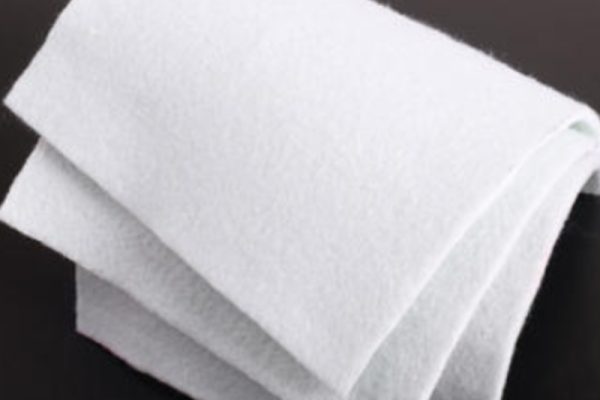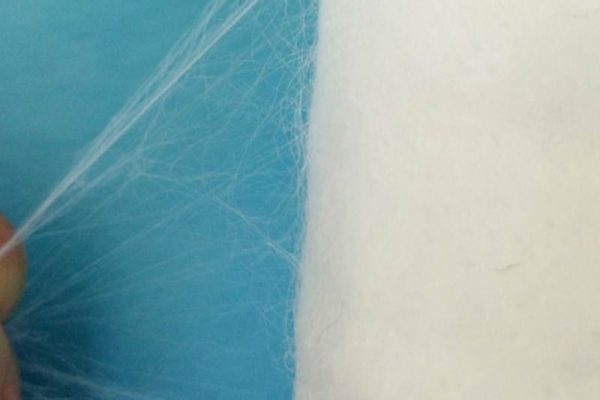Nonwoven Geotextiles Fabric
Non-Woven Geotextiles Fabric Manufacturer:Shandong Lianjie – The leading geotextile manufacturer in China.It is located in the High-Tech Development Zone of Tai’an City. Lianjie is a one-stop supplier of geosynthetics with 15 years of professional experience and multiple national certifications.Our products include 4 oz,6 oz,8 oz non woven geotextile fabric and so on. We will customize the most professional one-stop non-woven geotextile solution for you according to your needs!

What is Nonwoven Geotextile
Nonwoven geotextile is a three-dimensional mesh structural engineering material formed from polypropylene or polyester fibers through mechanical consolidation processes such as needle-punching or spunbonding. Its core functions include separation, filtration, drainage, and supplementary reinforcement. In engineering applications, it effectively prevents intermingling of different material layers while permitting water passage and retaining soil particles, thereby establishing a stable filtration system. It serves as a key material for enhancing engineering stability. Primary performance indicators include mass per unit area, tensile strength, and equivalent opening size.
Nonwoven Geotextile Prices
The price of woven geotextile is not fixed and is highly influenced by raw material costs (PP or PET), specifications, order volume, and market supply and demand.
Current market prices cover a wide range; for conventional specifications (e.g., with a mass per unit area of 100-200 g/m² and a tensile strength of 8-20 kN/m), the price generally falls between 2 and 6 RMB per square meter.
Products with higher strength, wider widths, or special features (such as UV resistance) command a higher price. Bulk orders typically qualify for volume-based discounts.

Our Nonwoven Geotextile Fabric for Sale
Nonwoven Geotextile Specification Parameter Table
Specification Name | Unit | Typical Range / Example | Reference Standard |
|---|---|---|---|
Mass per Unit Area | g/m² | 100, 150, 200, 300, 400, 500, 600, 800 | GB/T 13762 |
Thickness (@2kPa) | mm | 0.9 - 4.5 (increases with mass) | GB/T 13761.1 |
Tensile Strength | kN/m | 2.5 - 16.0 (increases with mass) | GB/T 15788 |
Elongation at Break | % | 30 - 80 | GB/T 15788 |
CBR Burst Strength | kN | 0.6 - 5.5 (increases with mass) | GB/T 14800 |
Tear Strength (Trapezoidal) | kN | 0.15 - 1.0 (increases with mass) | GB/T 13763 |
Vertical Permeability Coefficient | cm/s | 1.0×10⁻² - 1.0×10⁻¹ | GB/T 15789 |
Equivalent Opening Size (O₉₀ / O₉₅) | mm | 0.07 - 0.20 | GB/T 14799 |
the Key Strengths of Nonwoven Geotextiles

Separation
Prevents the intermingling of different soil layers or materials.

Filtration
Allows vertical water passage while preventing clogging and soil loss.

Drainage
Collects and directs water flow, dissipating pore water pressure.

Reinforcement
Enhances overall soil stability and bearing capacity.

What is Nonwoven Geotextile Fabric Used for

Used for separation, reinforcement, and drainage to prevent frost boiling and differential settlement.

Employed in base layers and cover layers for separation, protection, and drainage, serving as a critical component of the impermeable system.

Utilized in reverse filter layers and slope protection for dams and riverbanks to prevent soil erosion.

Applied in drainage and waterproofing systems on the exterior of basement walls.
Frequently Asked Questions
What are the different types of nonwoven geotextiles?
Nonwoven geotextiles are mainly divided into three types:
1、Short-fiber needle-punched geotextiles are formed by needle-punching fiber webs, featuring a loose structure with excellent in-plane drainage and filtration properties, making them suitable for roadbed drainage and landfills.
2、Filament spunbond needle-punched geotextiles, consolidated by needle-punching continuous filaments, exhibit higher tensile strength, tear resistance, and uniformity, making them ideal for critical projects such as high-speed railways and ports.
3、Heat-bonded geotextiles, formed by thermally melting fibers, are relatively stiff and thin with high mechanical strength but poor water permeability, primarily used for separation or as a base material for composites. Selection should be based on primary functional requirements such as drainage, filtration, and reinforcement.
Is Non woven geotextile permeable?
Yes, nonwoven geotextiles (specifically engineered ones) are typically porous and permeable materials. This characteristic is fundamental to their critical role in geotechnical engineering.
Their permeability is primarily demonstrated in two technical aspects:
Vertical Permeability
Mechanism: Their three-dimensional, randomly distributed fiber structure creates numerous interconnected and tortuous pores.
Function: This allows liquids (primarily water) to pass vertically through their plane. This property is the basis for their filtration function, enabling water flow while effectively retaining soil particles to prevent clogging.
Planar Permeability (or In-Plane Drainage Capacity)
Mechanism: Their relatively thick structure (especially needle-punched nonwovens) forms continuous water conveyance channels within their own plane.
Function: This allows them to collect and channel water flow within their plane, effectively dissipating pore water pressure and serving a drainage function.
Summary:
The permeability of nonwoven geotextiles is not simple “leakage” but rather a controlled permeability that works in synergy with the soil system. Their permeability can be precisely quantified and designed using key parameters such as the vertical permeability coefficient and Equivalent Opening Size (EOS). This ensures water can pass through without excessive loss of fine particles from the protected soil mass.
Therefore, being permeable is the physical foundation that enables nonwoven geotextiles to perform their two core functions: filtration and drainage.
Latest Blog Posts
Have you ever faced these frustrations:a gravel driveway that became uneven and
When constructing slope protection,reinforcing riverbanks,or building drainage channels,using riprap(rock armour)alone carries significant
This guide provides a comprehensive overview of geotextile materials,including basic concepts,types,a price
This article serves as a systematic guide to explain what geotextile filter
Imagine your beautifully laid paver driveway or patio,a significant investment of time
Why is non woven geotextile the preferred choice for French drain systems?
Explore our complete guide to geotextile road fabric. Learn about woven vs
Geotextile Fabric Retaining Wall.Discover why geotextile fabric is crucial for retaining wall













